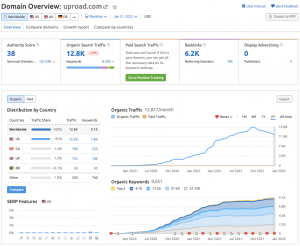Continued from last week, here are a couple more SEO myths.
3- Search engines, specifically Google, penalize duplicate content.
Technically, in the past when Google referred to duplicate content it was the same content showing up on the same site over and over again. Today, SEOs use the term to refer to the same content showing up anywhere online.
It’s very common on ecommerce websites where there will often be different URLs that lead to the same content or products where the only difference in the description is a color or size change.
It can also happen when someone posts the same content across multiple sites, which is called syndication.
Google has repeatedly stated there is no duplicate content penalty, yet this myth just won’t die.
That being said, duplicate content can cause some SEO issues for you.
One issue is link dilution. If the same content appears on more than one URL, and links one of those URLs get is not credited to the other URL.
On really large sites, it can cause wasted crawl budget. You don’t really need to worry about crawl budget unless your site is over 500,000 pages or so.
The biggest issue that happens frequently is duplicate content outranking the original content. You will find people complaining about this all the time. Someone scrapes their content, posts it on their site, and now they are being outranked with their own content.
Let’s make one thing clear. Google does not know who the original owner of a piece of content is and Google does not care. When Google finds two identical pieces of content they will rank the most authoritative version of that content. Google doesn’t like to show the same piece of content repeatedly in most SERPs, so the other version will usually get relegated to the supplemental index. It will be indexed, but just will not show up in search results.
Keep this in mind when guest posting or syndicating your own content on other sites. Yes, you may be getting a link, but you also may be unintentionally helping someone else to outrank your own site.
4- Long-tail keywords are easier to rank for.
Long-tail keywords are search queries that consist of several words and usually have lower search volume. There is a belief that long-tails are all easier to rank for than their shorter stem counterparts.
However, long-tails are more specific searches, so tend to be lower in the sales funnel. In other words, they are often “buyer keywords”.
Because of this, they sometimes do get targeted pretty heavily by authoritative sites.
For example, if you take a look at the queries “workouts” and “workouts you can do at home”, you will see there is a massive difference in search volumes, but their keyword difficulty (according to Semrush) is about the same.






